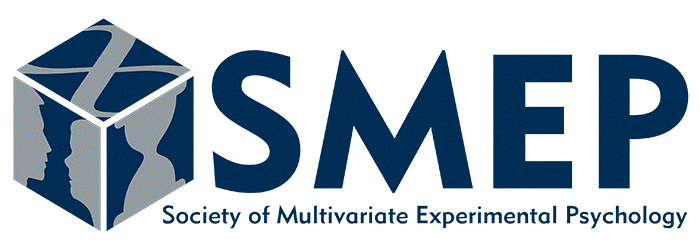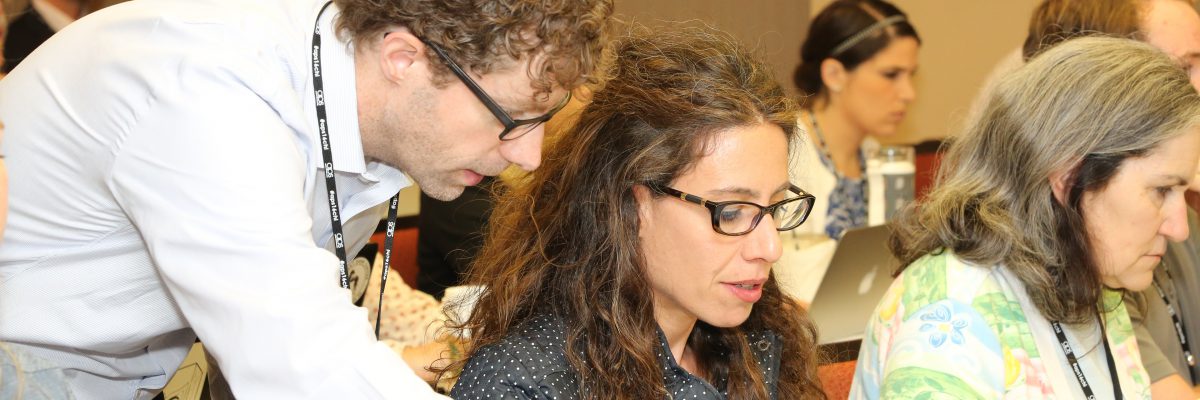Please note: Workshops are open to Convention and/or Teaching Institute registrants only and require separate registration.
Everything You Ever Wanted to Know About Experience-Sampling Methodology*
Thursday, May 25 at 9:00 AM – 10:50 AM

Thomas R. Kwapil, University of Illinois at Urbana-Champaign
Ambulatory-assessment methods have expanded the study of psychological phenomena from the laboratory and clinic into naturalistic environments. This workshop provides an introduction to experience-sampling methodology and reviews the variety of methods and applications for conducting assessments in real-world environments. It covers developing studies and surveys, choosing technology and applications, and working with nested data. It is designed for beginning and experienced investigators.
Introduction to R Statistical System*
Thursday, May 25 at 9:00 AM – 12:50 PM
 William R. Revelle, Northwestern University |
 David M. Condon, Northwestern University |
 Sara Weston, Washington University in St. Louis |
R is an integrated suite of software facilities for data manipulation, calculation, and graphical display that is particularly useful for psychological scientists. This workshop will assume no prior knowledge of R and will emphasize standard functions for analysis and display of experimental and correlational data for classroom and research. Time will be devoted to loading data directly or from other systems (e.g., SPSS, SAS, Excel) and to finding basic descriptive and inferential statistics. The examples will be applied to the participants’ own data sets. A short introduction to programming in R will be included to help understand the use of contributed packages, their functions and the objects they return. A few examples will be worked through in detail to help understand the use of the many options available for each function and to give the participants confidence in exploring some of the many other packages and functions available to users of R.
Bayesian Inference With JASP: A Fresh Way to Do Statistics*
Thursday, May 25 at 9:00 AM – 12:50 PM

Eric-Jan Wagenmakers, University of Amsterdam, The Netherlands
Bayesian inference is sensible and elegant, and it also brings considerable practical benefits. Using concrete examples, this workshop uses the open-source program JASP (jasp-stats.org) to explain the foundations of Bayesian inference and highlight its practical ramifications.
Social Relations Modeling of Dyadic Data*
Thursday, May 25 at 9:00 AM – 12:50 PM

Thomas E. Malloy, Rhode Island College
Although dyadic research addresses the rich texture of social behavior, it poses unique analytic challenges. The Social Relations Model (SRM) is well suited for research on a broad range of interpersonal phenomena that can be studied simultaneously at the individual, dyadic, and group levels of analysis. This workshop will provide an introduction to the logic of dyadic analysis using the SRM, multiple interaction designs, the organization of data, specialized software for dyadic analysis, the interpretation of variance components and correlations, modeling complex phenomena following the initial social relations analysis, and the reporting of results. The workshop is designed for those with no knowledge of social relations analysis, with the goal of developing skills necessary to design and conduct dyadic research. Advanced statistical issues related to the SRM will not be considered.
Bringing an Experimental Medicine Approach to Behavior Change Research: A Hands-On Introduction to the NIH Science of Behavior Change Program and Its Method
Thursday, May 25 at 9:00 AM – 1:00 PM
 Jennifer A. Sumner, Columbia University Medical Center |
 Donald Edmondson, Columbia University Medical Center |
The NIH Science Of Behavior Change (SOBC) program uses an experimental medicine approach to elucidate how behavior change works, and funders across the NIH are moving to require the use of the experimental medicine approach for mechanistic research. In this workshop, attendees will learn about SOBC and engage with the experimental medicine method in a hands-on way.
*Space for this free workshop will be limited and available on a first-come, first-serve basis.
NIH Funding for Psychological Science
Thursday, May 25 at 2:00 PM – 3:50 PM

Rebecca C. Ferrer, National Cancer Institute
NIH program directors, peer reviewers on NIH panels, and NIH grantees will present an “insider” perspective on federal funding for basic/use-inspired psychological science. The workshop will highlight NIH priorities in psychological sciences and common scientific and methodological problems that can hinder an application’s navigation through review and programmatic prioritization.
Documenting the Research Workflow as It Happens*
Thursday, May 25 at 2:00 PM – 3:50 PM

Lorne J. Campbell, University of Western Ontario, Canada
In this workshop I will discuss how to document the research workflow as it happens. Topics such as (pre) registration of study materials, procedures and hypotheses, the curation of data, meta-data and analytic code, and posting manuscripts to pre-publication servers will be discussed.
Computational Modeling of Decision-Making Tasks With a Single Line of Coding: Modeling Can Be as Easy as Doing a T Test
Sunday, May 28 at 9:00 AM – 10:50 AM
 Woo-Young Ahn, The Ohio State University |
 Nathaniel Haines, The Ohio State University |
Computational modeling is useful for understanding human neurocognitive processes. In this workshop, we will describe the basic concepts of computational modeling and provide hands-on tutorials using an R package called hBayesDM. After this workshop, participants with basic knowledge in R could easily adopt computational modeling into their research.
Video Coding, Sharing, and Reuse: Databrary and Datavyu*
Sunday, May 28 at 9:00 AM – 11:50 AM

Karen E. Adolph, New York University
Video uniquely captures the richness and complexity of behavior—where people look, what they say, and what they do. This workshop will teach researchers how to mine the richness of behavior by coding, sharing, and reusing research videos with Datavyu, a free video-coding tool, and Databrary, a free Web-based library for sharing videos.
Conducting Daily Life Research With the EAR Method*
Sunday, May 28 at 9:00 AM – 11:50 AM

Matthias R. Mehl, The University of Arizona
This workshop introduces participants to research with the electronically activated recorder (EAR) method. It reviews prior research with the EAR method to discuss its validity, utility, and limitations as an observational ambulatory-assessment method and provides information on important considerations around designing, running, and analyzing an EAR study.
Multilevel Structural Equation Modeling*
Sunday, May 28 at 9:00 AM – 11:50 AM

Zhen Zhang, Arizona State University
Structural equation modeling (SEM) helps researchers to test substantive theories using data that have multiple indicators per variable. This workshop focuses on challenges facing applied researchers when they switch from a single-level SEM mindset to a multilevel one. We discuss methods for more accurately examining relationships in multilevel SEM settings.
How to Conduct Reproducible Psychological Science: A Tutorial Overview*
Sunday, May 28 at 9:00 AM – 12:50 PM

Tal Yarkoni, The University of Texas at Austin
This workshop will familiarize psychological scientists with best practices used by many scientists in other disciplines to ensure reproducibility of analyses and results. Topics covered include good data hygiene; automating one’s workflow; using interactive notebooks; maintaining projects under version control; and sharing data and results openly.
Easing the Anxiety of Being Human
Sunday, May 28 at 9:00 AM – 12:50 PM

James Carmody, University of Massachusetts Medical School
Evolutionary principles have shaped both attention and the semi-vigilant cognitive processes that result in everyday unease. The workshop describes the shared psychological mechanisms by which mindfulness, other mind-body modalities and CBT ameliorate these, and incudes meditative practices that allow their recognition and greater personal ease.
*Co-sponsored by APS and the Society of Multivariate Experimental Psychology (SMEP). Separate registration is required for workshops, which are open to Convention and/or Teaching Institute registrants only.





